All contributors
-
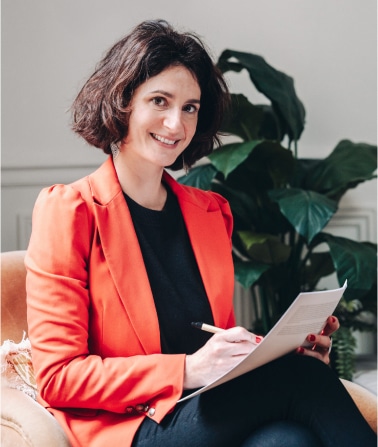 Marion BalgalierLawyer and mediator specializing in public law, particularly in urban planning.
Marion BalgalierLawyer and mediator specializing in public law, particularly in urban planning.Marion Balgalier is a lawyer and mediator specializing in public law, particularly in urban planning. After being sworn in on December 18, 2013, she worked as an associate lawyer in several Parisian law firms specializing in public law, including CLL Avocats (2013-2014), Richer & Associés (2014-2017), and Frêche & Associés (2017-2021). In June 2021, she joined Paris Sud Aménagement as Operations Manager and Legal Engineering Head, applying her legal expertise to support urban development projects. At the same time, she pursued a University Diploma in Mediation at the Catholic Institute of Paris, enhancing her skills in alternative dispute resolution. In January 2025, she resumed her work as a lawyer and mediator, offering legal and mediation services to facilitate projects and resolve conflicts in the field of urban planning.
-
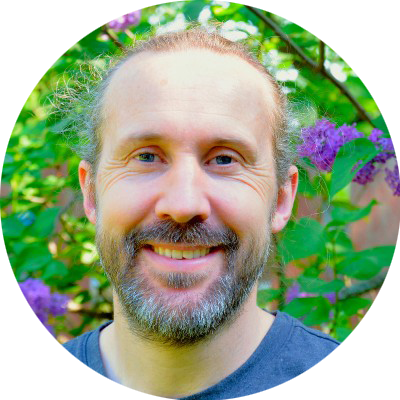 Arnaud BouchenyEcologist and trainer
Arnaud BouchenyEcologist and trainerArnaud Boucheny is a French ecologist with a deep passion for nature and biodiversity conservation. Over the course of his career, he has gained diverse experience in education, environmental organizations, and the private sector — always with a focus on ecology and ecosystem preservation. In 2024, he published “Micro-aventure à la rencontre des oiseaux”, a guide featuring 17 walks across France that invite readers to explore nature through birdwatching. Today, Arnaud trains the next generation of Nature Management and Conservation technicians.
-
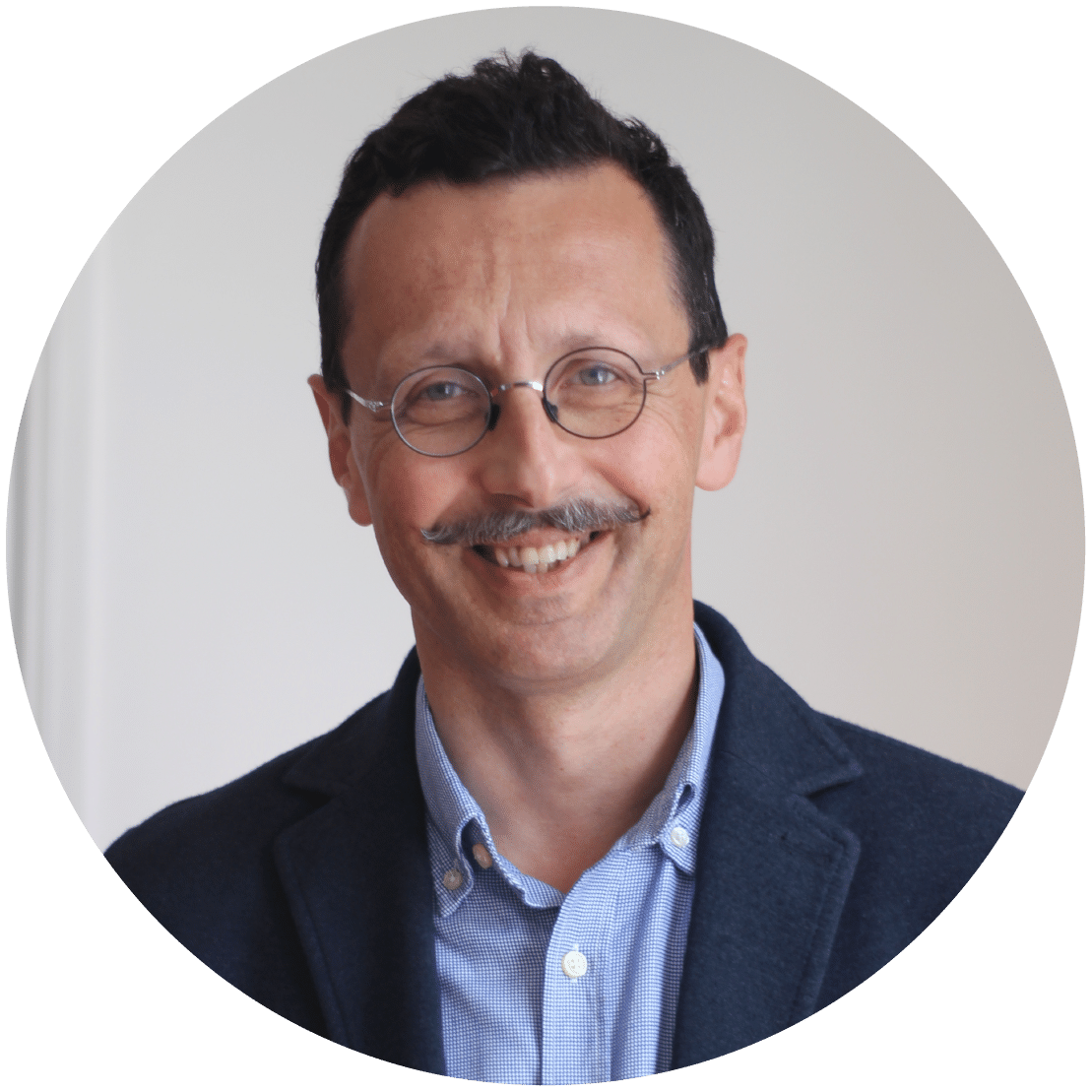 Denis CaraireCXO and co-founder of Villes Vivantes
Denis CaraireCXO and co-founder of Villes VivantesDenis Caraire is an urban planner and currently serves as President of the Professional Office for Urban Planning Certification (OPQU). For over 25 years, he has been deeply involved in public initiatives aimed at improving the private housing stock, both in France and internationally. His career has spanned roles in semi-public companies, urban planning agencies such as APUR, and leadership positions within the SOLIHA housing solidarity movement.
In 2016, he brought his expertise and energy to the founding team of Villes Vivantes. Since then, he has played a key role in aligning and preparing the technical and political teams of pioneering local authorities engaged in France’s first gentle densification projects.
-
 Manon CaussadeContent manager and writer
Manon CaussadeContent manager and writerManon Caussade is a writer working with innovative companies. After spending three years as a professional investor in startups, she chose to help them communicate more effectively. Her mission? To transcribe and share the original ideas and numerous initiatives that are shaping the cities and villages of tomorrow.
-
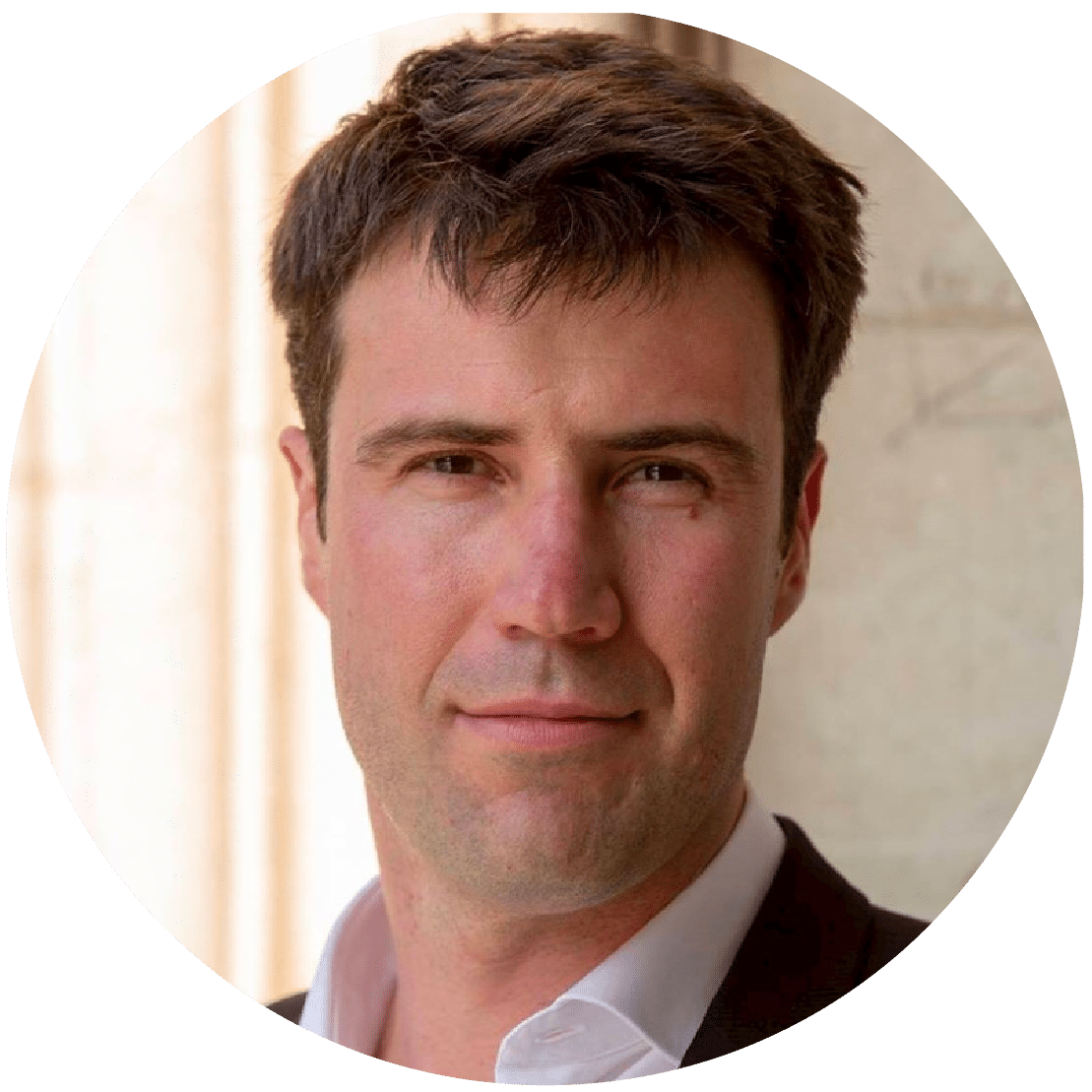 Olivier ChambordLawyer and founder of the Chambord Avocats practice
Olivier ChambordLawyer and founder of the Chambord Avocats practiceMaître Olivier Chambord is a lawyer, doctor in law, and a lecturer at the University of Bordeaux. His thesis, "New Urban Planning Law: A Contribution to the Study of the Relationship Between Unilateral Acts and Contracts," was awarded the Thesis Prize by the Bordeaux Bar Association. He is also the author of the book Droit de l'urbanisme et de l'aménagement - La fabrique de la ville. His expertise spans urban planning law, environmental law, public and private real estate law, and local government law. His goal is to support the satisfaction of social and societal needs by using law to enhance the effectiveness of public policies related to urban development, particularly regarding housing production, while ensuring the defense of virtuous building rights to implement the Net Zero Land Take (ZAN).
-
 VVCODESThe Organic Urbanism Lab
VVCODESThe Organic Urbanism LabVVCODES is the research laboratory of Villes Vivantes. Our research work is conducted with academic, institutional, and local authority partners. It has received support from the National Research Agency, and one of our prototypes was selected as a “Sustainable City Demonstrator” under the France 2030 program led by the Banque des Territoires and the Ministry of Ecology. Our work is notably presented and discussed at ORGANIC CITIES events, co-organized by Villes Vivantes and VVCODES with the OFCE and Sciences Po Paris.
-
 Jean ColdefyAdvisor to the President of Transdev and Mobility Expert
Jean ColdefyAdvisor to the President of Transdev and Mobility ExpertJean Coldefy leads several think tanks on mobility and serves as an advisor to the president of Transdev. An engineer from École Centrale de Lille, he was previously Deputy Head of the Urban Mobility Department for Lyon Métropole after managing mobility and innovation activities at a consulting firm. A local elected official for twelve years, he currently chairs the Scientific Committee of France Mobilités and contributed to the drafting of the Mobility Orientation Law (LOM). He advises businesses and local authorities on mobility projects and teaches at several higher education institutions and universities. Jean Coldefy is also the author of Mobilités: Changer de modèle (Publishroom, 2022).
-
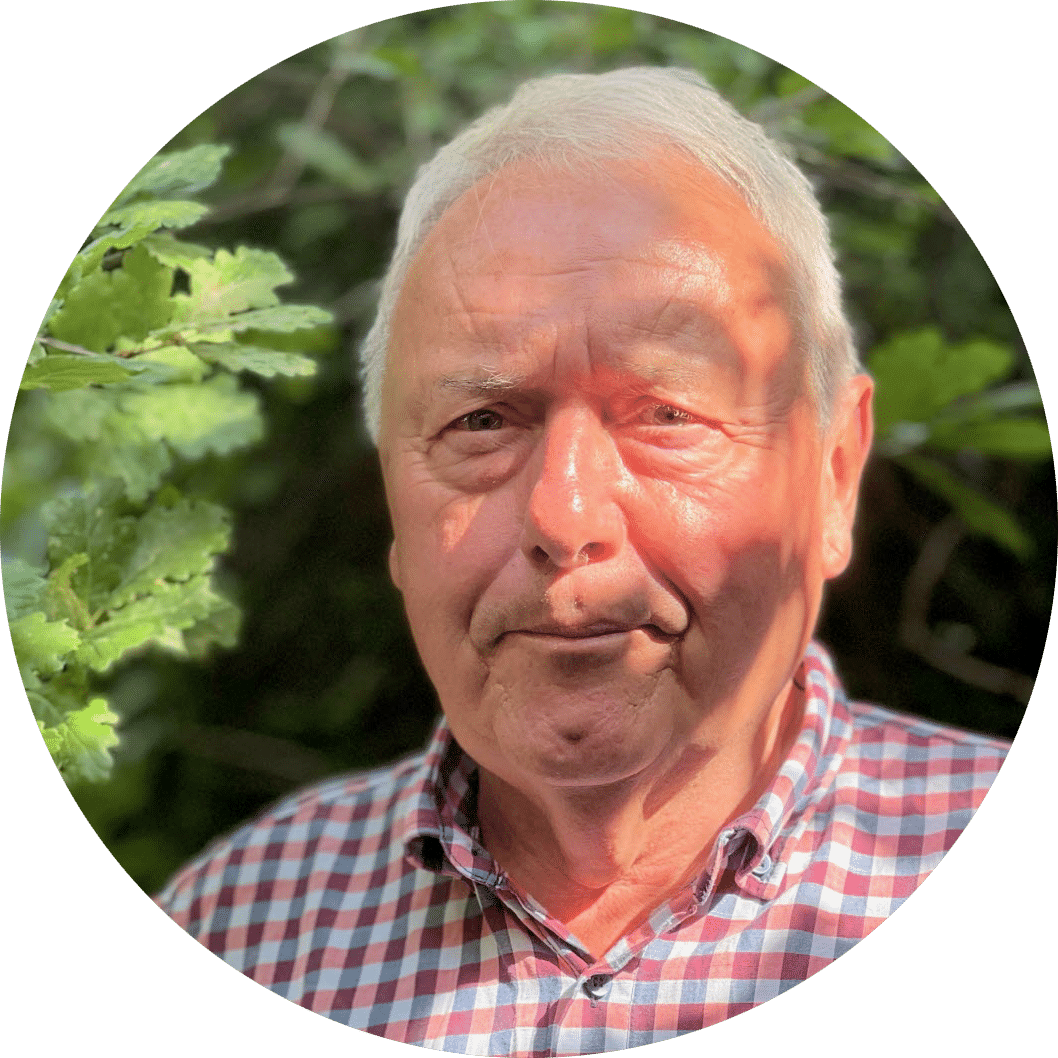 Yves DarricauAgronomist, beekeeper, author, and tree planter
Yves DarricauAgronomist, beekeeper, author, and tree planterYves Darricau is an agronomist and a graduate of AgroParisTech, the French national institute of agronomy. He has worked as an international consultant and advisor on various European and United Nations programs. A dedicated beekeeper, he has for several years pursued in-depth research—drawing from botany and landscape ecology—on how plant life adapts to changing climate conditions. He is the author of several books, including « La vigne et ses plantes compagnes » (co-authored with his daughter Léa Darricau, Éditions du Rouergue, 2019), « Des arbres pour le futur – Mémento du planteur pour 2050 » (Éditions du Rouergue, 2022), and « Planter des arbres pour les abeilles - L'apiforesterie adaptée aux espaces et aux enjeux d'aujourd'hui » (Terran Éditions, 2023).
-
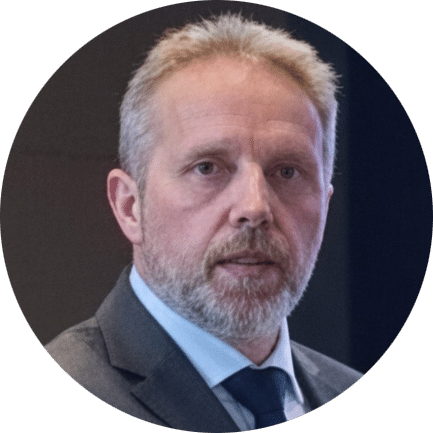 Remco DeelstraStrategic Housing Advisor at the Municipality of Leeuwarden and a member of the editorial board of the urban planning journal Rooilijn.nlRemco Deelstra is Strategic Housing Advisor at the Municipality of Leeuwarden and a member of the editorial board of the urban planning journal Rooilijn.nl. Passionate about how cities function since childhood, he has specialized in the interactions between the built environment and urban social life. As an urban planner with expertise in territorial development and urban renewal, he contributes to numerous strategic plans for affordable and inclusive housing. A regular contributor to Rooilijn.nl since 2008 and a frequent guest speaker, he advocates for inclusive urbanism that integrates housing, work, and mobility to deliver genuine sustainable urban quality of life.
Remco DeelstraStrategic Housing Advisor at the Municipality of Leeuwarden and a member of the editorial board of the urban planning journal Rooilijn.nlRemco Deelstra is Strategic Housing Advisor at the Municipality of Leeuwarden and a member of the editorial board of the urban planning journal Rooilijn.nl. Passionate about how cities function since childhood, he has specialized in the interactions between the built environment and urban social life. As an urban planner with expertise in territorial development and urban renewal, he contributes to numerous strategic plans for affordable and inclusive housing. A regular contributor to Rooilijn.nl since 2008 and a frequent guest speaker, he advocates for inclusive urbanism that integrates housing, work, and mobility to deliver genuine sustainable urban quality of life. -
 Charles-Antoine DepardonArchitect and urbanist, General Director of la Foncière Logement Abordable of Paris and Saint-Ouen
Charles-Antoine DepardonArchitect and urbanist, General Director of la Foncière Logement Abordable of Paris and Saint-OuenCharles-Antoine Depardon is a French architect and urban planner whose career is defined by a strong commitment to urban and architectural transformation. A graduate of the École Spéciale d'Architecture in Paris (2012), he continued his studies at Seika University in Kyoto and earned a specialized master’s degree in urban development and project management from École des Ponts ParisTech in 2014. He began his career with renowned firms such as Atelier Christian de Portzamparc and Ishigami + Associates, before joining Gares & Connexions, where he led major national and international projects, including the modernization of Montparnasse train station, the 'Bahrain French Town Initiative' in Manama, and early-stage studies for the Tehran high-speed rail station.
In 2018, he joined a major national real estate developer as Development Director, where he notably contributed to winning part of the Paris 2024 Olympic Village. Since 2020, Charles-Antoine has served as an advisor on urban planning and architecture to Emmanuel Grégoire, First Deputy Mayor of Paris. In this role, he played a central part in shaping land use, real estate, and regulatory urban planning policy — most notably leading the development of Paris’s new bioclimatic Local Urban Plan. He later served as Deputy Chief of Staff to Lamia El Araaje, Deputy Mayor for Urban Planning, Architecture, and Greater Paris, and now serves as CEO of la Foncière du Logement Abordable of Paris and Saint-Ouen.
-
 Millie DoddSenior Communications Manager for Just Build Homes
Millie DoddSenior Communications Manager for Just Build HomesMillie Dodd is a key figure in the housing advocacy movement in the UK. She is the Marketing and Communications Manager for Just Build Homes, an organization dedicated to mobilizing support for new construction projects. Known for her involvement in the Yes In My Back Yard (YIMBY) movement, she works to engage younger generations and new voices in the planning and development process to address the country's housing shortage.
-
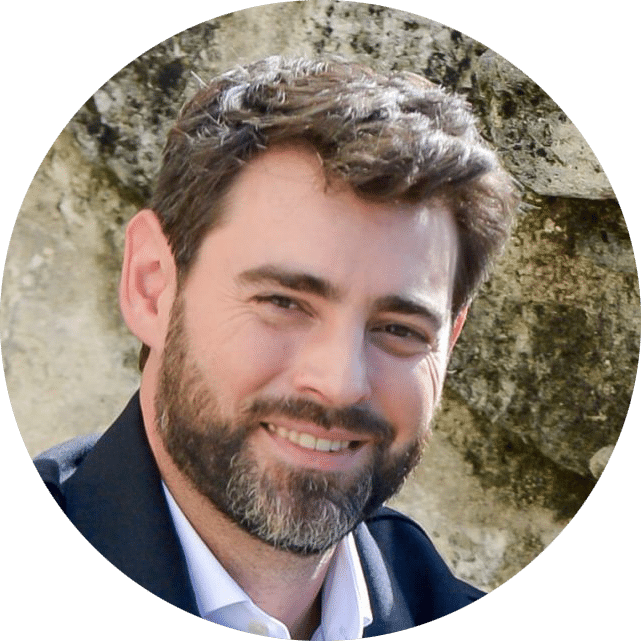 Franck DurandArchitect and National Secretary of the Union Nationale des Syndicats Français d’Architectes (UNSFA)
Franck DurandArchitect and National Secretary of the Union Nationale des Syndicats Français d’Architectes (UNSFA)Franck Durand is the National Secretary of the Union Nationale des Syndicats Français d’Architectes (UNSFA). This organization, dedicated to defending and promoting the profession of architecture in France, plays a key role in public and professional discussions surrounding architecture and urban planning. Based in the Aisne region, Franck Durant works as an architect mostly in rural areas and within a collective organized as a Cooperative and Participative Society (Scop), combining a collaborative and solidarity-based approach with his professional practice.
-
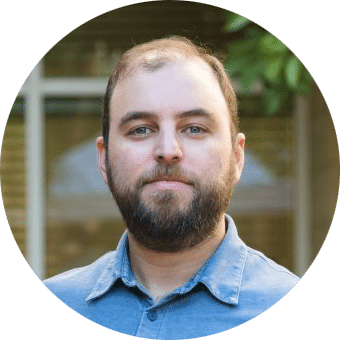 Matt FrommerTransportation & Land Use Policy Manager at the Southwest Energy Efficiency Project (SWEEP), leading the Housing Forward Colorado campaignMatt Frommer is Transportation & Land Use Policy Manager at the Southwest Energy Efficiency Project (SWEEP), where he leads the Housing Forward Colorado campaign. Specialized in transportation, land use, and housing policy, he works to promote more accessible, equitable, and sustainable communities by reducing car dependency, encouraging active transportation and transit, and supporting compact, affordable urban development. A former architect, he now applies his expertise to major legislative reforms in Colorado (transit-oriented development, elimination of parking minimums, densification near transit, inclusive housing). A regular contributor to analyses and blogs on the connections between housing, climate, and mobility, he advocates for urban development that lowers emissions, improves access to opportunities, and makes both housing and transportation more affordable for everyone.
Matt FrommerTransportation & Land Use Policy Manager at the Southwest Energy Efficiency Project (SWEEP), leading the Housing Forward Colorado campaignMatt Frommer is Transportation & Land Use Policy Manager at the Southwest Energy Efficiency Project (SWEEP), where he leads the Housing Forward Colorado campaign. Specialized in transportation, land use, and housing policy, he works to promote more accessible, equitable, and sustainable communities by reducing car dependency, encouraging active transportation and transit, and supporting compact, affordable urban development. A former architect, he now applies his expertise to major legislative reforms in Colorado (transit-oriented development, elimination of parking minimums, densification near transit, inclusive housing). A regular contributor to analyses and blogs on the connections between housing, climate, and mobility, he advocates for urban development that lowers emissions, improves access to opportunities, and makes both housing and transportation more affordable for everyone. -
 Clément GaillardPhD in Urban Planning, climatic design expert and founder of Freio
Clément GaillardPhD in Urban Planning, climatic design expert and founder of FreioClément Gaillard is an urban planner and designer specializing in climate-responsive design. He is the founder of Freio, a consultancy that supports professionals and local governments in bioclimatic design and the adaptation of cities and buildings to climate change. Clément holds a PhD focused on the history of bioclimatic design in architecture and urban planning. He is the author of Bioclimatique (Terre Urbaine, 2024) and served as editor of a 2023 anthology on the history of appropriate technology (T&P Editions).
-
 Luc GnacadjaFormer Minister of Benin in charge of Environnement, Housing and Urban Planning and 2nd Executive Secretary of the United Nations Convention to Combat Desertification (UNCCD)
Luc GnacadjaFormer Minister of Benin in charge of Environnement, Housing and Urban Planning and 2nd Executive Secretary of the United Nations Convention to Combat Desertification (UNCCD)Luc Gnacadja is a Beninese architect and politician who served as Minister of Environment, Housing, and Urban Planning of Benin from 1999 to 2005, and as the second Executive Secretary of the United Nations Convention to Combat Desertification (UNCCD) from 2007 to 2013. His architectural expertise informs his approach to urban development, sustainability, and green infrastructure. Strongly committed to the future of cities as drivers of sustainable territorial transformation, particularly in the face of climate change, he was a passionate advocate for land degradation neutrality and the involvement of local populations in land and housing practices.
-
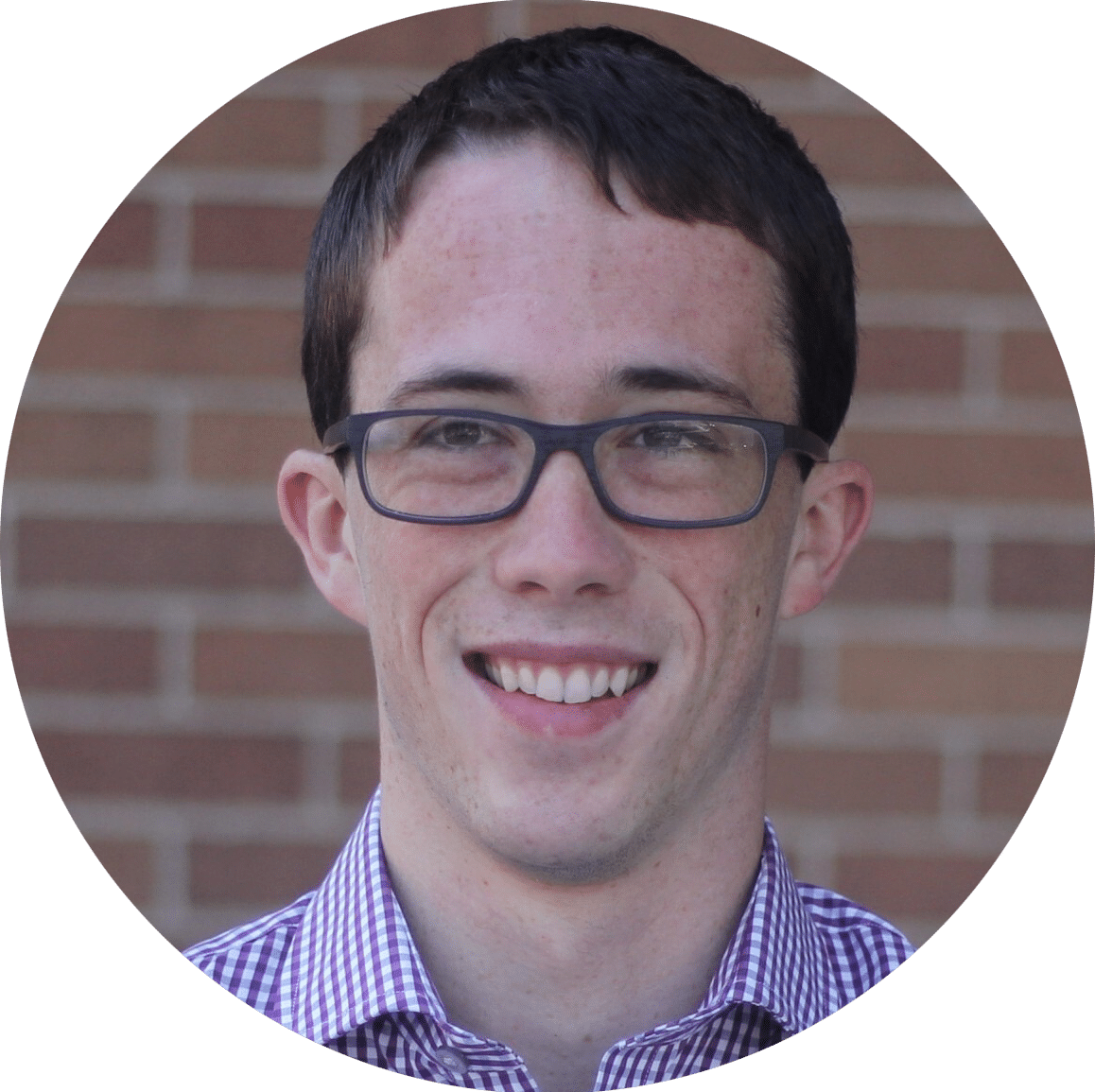 Brian GogginAffordable housing developer at True Ground Housing Partners and member of the Commonwealth Housing Coalition
Brian GogginAffordable housing developer at True Ground Housing Partners and member of the Commonwealth Housing Coalition -
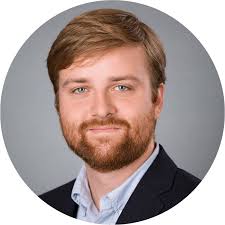 Nolan GrayUrban planner, researcher, and legislative and research director for California YIMBYUrban planner, researcher, and legislative and research director for California YIMBY, an organization advocating for the construction of affordable housing in California. He is also pursuing a PhD in urban planning at the University of California, Los Angeles (UCLA). Holding a master’s degree in urban and regional planning from Rutgers University, as well as bachelor’s degrees in philosophy and political science, Nolan Gray has worked as an urban planner in New York and as a research associate at the Mercatus Center. Author of Arbitrary Lines: How Zoning Broke the American City and How to Fix It, he critiques restrictive zoning laws and advocates for reforms to facilitate housing development.
Nolan GrayUrban planner, researcher, and legislative and research director for California YIMBYUrban planner, researcher, and legislative and research director for California YIMBY, an organization advocating for the construction of affordable housing in California. He is also pursuing a PhD in urban planning at the University of California, Los Angeles (UCLA). Holding a master’s degree in urban and regional planning from Rutgers University, as well as bachelor’s degrees in philosophy and political science, Nolan Gray has worked as an urban planner in New York and as a research associate at the Mercatus Center. Author of Arbitrary Lines: How Zoning Broke the American City and How to Fix It, he critiques restrictive zoning laws and advocates for reforms to facilitate housing development. -
 Thomas HanssCTO and co-founder of Villes VivantesThomas Hanss was a horticulturist and then a gardener. His interest in ecology led him to become a landscape engineer and now an urban planner. He embarked on the Villes Vivantes adventure as soon as it was founded in the spring of 2013. His goal? To enable every resident to build their home where they need it, to live where they want to live, in environment that matches their desires. How? By creating the conditions for everyone to become a co-producer of beautiful cities and villages.
Thomas HanssCTO and co-founder of Villes VivantesThomas Hanss was a horticulturist and then a gardener. His interest in ecology led him to become a landscape engineer and now an urban planner. He embarked on the Villes Vivantes adventure as soon as it was founded in the spring of 2013. His goal? To enable every resident to build their home where they need it, to live where they want to live, in environment that matches their desires. How? By creating the conditions for everyone to become a co-producer of beautiful cities and villages. -
 Amandine HernandezCOO & co-founder of Villes Vivantes
Amandine HernandezCOO & co-founder of Villes VivantesAmandine Hernandez is an architect and urban planner with over a decade of experience in Brazil and France. A key contributor to Villes Vivantes since its early days, she officially joined the founding team in 2017 to lead operations with energy and vision. Her mission: to scale up gentle densification projects by driving momentum, setting a clear direction, and cultivating a culture grounded in expertise that is both rigorous and imaginative.
-
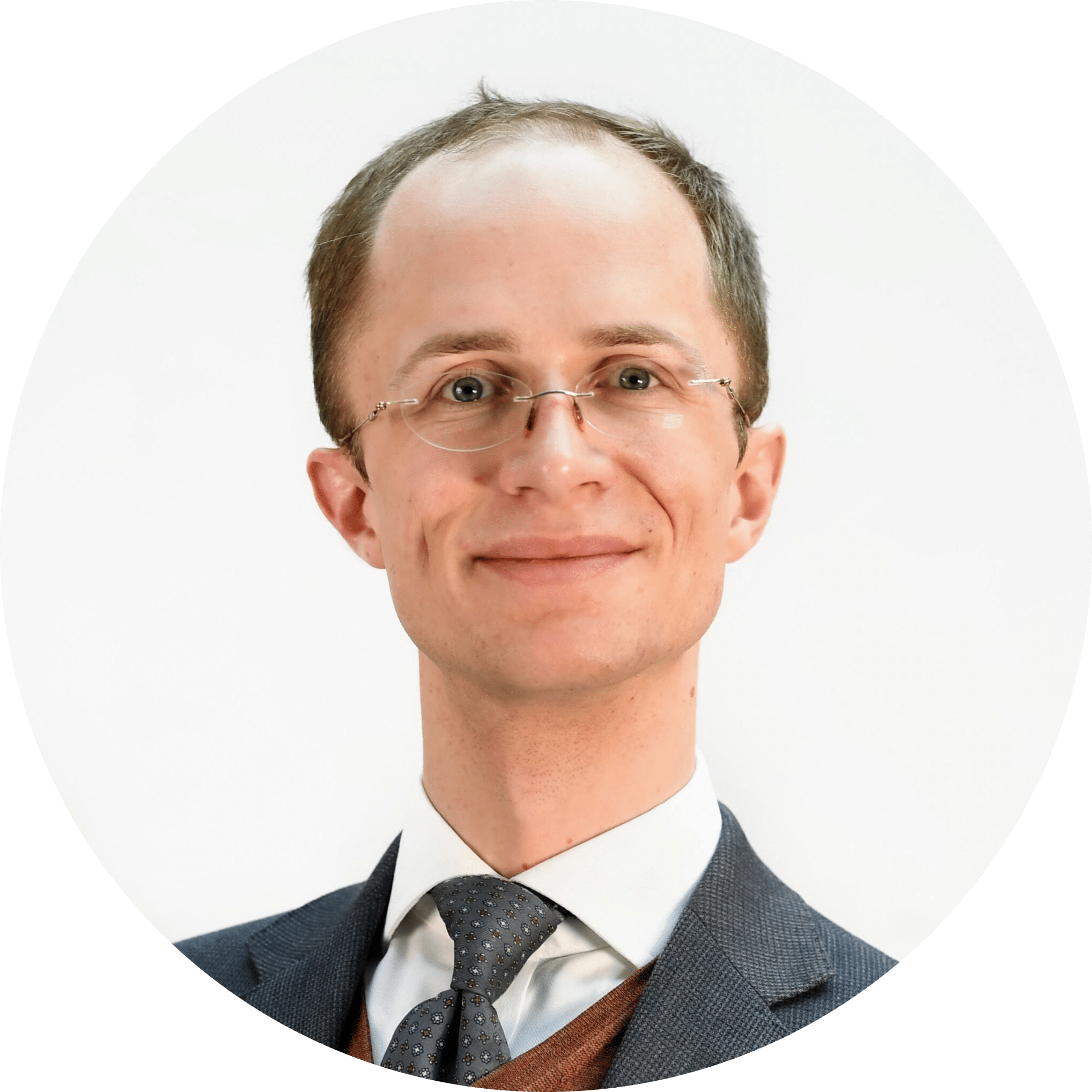 Samuel HughesSamuel Hughes, expert in housing policy and urban planning researcher.Samuel Hughes explores the intersections between architecture, urban history, and public policy to restore meaning and beauty to our living environments. He holds a PhD in philosophy from the University of Cambridge, where he defended a thesis on aesthetics and rationality. Today, he is an editor at Works in Progress, where he highlights institutional and technical innovations capable of addressing major contemporary challenges, particularly the housing crisis. He is a research fellow at the Centre for Policy Studies and at the University of Oxford, focusing his work on "gentle densification" and reform of the planning system. He is notably the co-author of the report Strong Suburbs (published by Policy Exchange in 2021), which proposes giving residents the power to vote for the beautification and densification of their own street.
Samuel HughesSamuel Hughes, expert in housing policy and urban planning researcher.Samuel Hughes explores the intersections between architecture, urban history, and public policy to restore meaning and beauty to our living environments. He holds a PhD in philosophy from the University of Cambridge, where he defended a thesis on aesthetics and rationality. Today, he is an editor at Works in Progress, where he highlights institutional and technical innovations capable of addressing major contemporary challenges, particularly the housing crisis. He is a research fellow at the Centre for Policy Studies and at the University of Oxford, focusing his work on "gentle densification" and reform of the planning system. He is notably the co-author of the report Strong Suburbs (published by Policy Exchange in 2021), which proposes giving residents the power to vote for the beautification and densification of their own street. -
 Patrick Lamson-HallDirector of the Urban Expansion and the Periphery program of the Africa School of Economics of Zanzibar and co-founder of Fitted Projects
Patrick Lamson-HallDirector of the Urban Expansion and the Periphery program of the Africa School of Economics of Zanzibar and co-founder of Fitted ProjectsDr. Patrick Lamson-Hall leads the Urban Expansion and the Periphery program at the Africa School of Economics in Zanzibar. He is the co-founder of Fitted Projects, a leading agency specializing in urban and economic planning. As an urban planner, he has developed planning projects and urban plans in over thirty cities across Africa, Latin America, the Caribbean, and North America, including the ZEDE Morazán in Honduras. He is a research affiliate at the Marron Institute for Urban Management at New York University (NYU) and has worked closely with Cities Alliance, the Rockefeller Foundation, Bloomberg Associates, UN-Habitat, and the World Bank. A globally recognized expert on urban growth, he has developed new planning techniques for rapidly growing, low-income cities. Patrick Lamson-Hall holds a master’s degree in urban planning and a PhD in public administration from the Wagner School of Public Service at NYU.
-
 Florent LarocheTransport economist and mobility expert, currently a senior lecturer at Université Lumière Lyon 2 and a researcher at the Laboratoire d’Aménagement et d’Économie des Transports (LAET).Florent Laroche is a transport economist and mobility expert, currently a senior lecturer at Université Lumière Lyon 2 and a researcher at the Laboratoire d’Aménagement et d’Économie des Transports (LAET). He holds a PhD in economics and also heads the professional bachelor’s program in “Gestion et Management des Services Ferroviaire” (GMSF) within the Faculty of Economics and Management. His research focuses on the analysis of transport network performance, the strategies of stakeholders in the sector, emerging mobility solutions, and the impact of digital technologies on lifestyles. He has a particular interest in ecological transition and foresight in the field of transportation. He is also a member of the Scientific Council of the Haut-Jura Regional Nature Park. He recently published the essay “La face cachée de la sobriété” with Éditions de l’Aube.
Florent LarocheTransport economist and mobility expert, currently a senior lecturer at Université Lumière Lyon 2 and a researcher at the Laboratoire d’Aménagement et d’Économie des Transports (LAET).Florent Laroche is a transport economist and mobility expert, currently a senior lecturer at Université Lumière Lyon 2 and a researcher at the Laboratoire d’Aménagement et d’Économie des Transports (LAET). He holds a PhD in economics and also heads the professional bachelor’s program in “Gestion et Management des Services Ferroviaire” (GMSF) within the Faculty of Economics and Management. His research focuses on the analysis of transport network performance, the strategies of stakeholders in the sector, emerging mobility solutions, and the impact of digital technologies on lifestyles. He has a particular interest in ecological transition and foresight in the field of transportation. He is also a member of the Scientific Council of the Haut-Jura Regional Nature Park. He recently published the essay “La face cachée de la sobriété” with Éditions de l’Aube. -
 Paul LecatHistorian, specialist in 19th-century social and urban history
Paul LecatHistorian, specialist in 19th-century social and urban historyPaul Lecat is a French historian and a lecturer in contemporary history at the University of Tours. His research focuses on the development of the peripheral areas of Paris during the 19th and 20th centuries, with a particular emphasis on the role of working-class communities in the urban fabric. In 2021, he defended his thesis titled "La fabrique d’un quartier ordinaire. Le quartier de la Réunion entre Charonne et Paris des années 1830 aux années 1930" at the University Gustave Eiffel. His thesis was awarded the Prize from the Society of History and Archaeology of the 7th Arrondissement of Paris, presented by the Fondation des travaux historiques et scientifiques.. Paul Lecat has also co-authored works such as "Bescherelle - Chronologie de l’histoire de Paris", published in October 2024, which outlines the key dates in the history of the French capital.
-
 Coby LefkowitzUrbanist, real estate developer, writer and consultant based in New York
Coby LefkowitzUrbanist, real estate developer, writer and consultant based in New YorkCoby Lefkowitz is an urbanist, real estate developer, writer, and consultant based in New York.
In 2021, he co-founded Backyard, a real estate development company specializing in infill projects aimed at creating new affordable housing through tailored implementation and popular aesthetics. Primarily active in San Diego and Southern California, Backyard currently has 19 housing units in development across three projects, ranging from 3 to 12 units.Beyond his own projects, Coby supports developers worldwide—whether small-scale individual constructions (ADUs, houses, duplexes) or entire neighborhoods spanning thousands of square meters—by engaging in every stage of the process: vision, financial analysis, design, programming, and site development.
He is the author of the book Building Optimism, published in 2024, where he shares his vision of urbanism focused on beauty, density, and conviviality. He has also published numerous articles online in high-quality media outlets such as Works in Progress, Common Edge, and Noema.
-
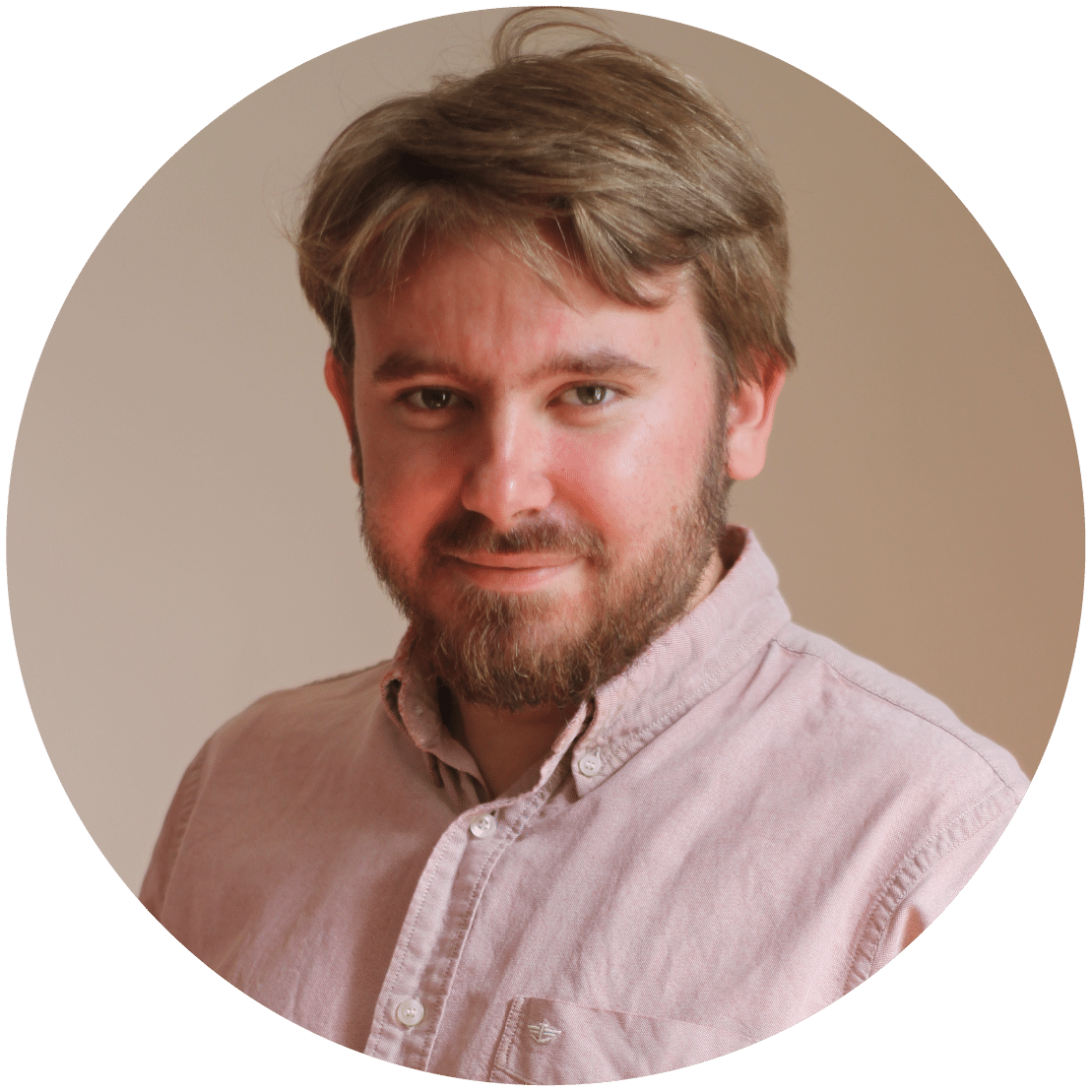 Paul LempérièreCDO and co-founder of Villes Vivantes
Paul LempérièreCDO and co-founder of Villes VivantesPaul Lempérière is an architect and urban planner, and a co-founder and partner of Villes Vivantes since 2017. Over 1,000 residents have already benefited from his agile and intense coaching to think about and envision their future housing projects, and to embark on the path of making them a reality. His goal? To touch the heart of each resident, bring a multitude of projects to life, and give meaning and strength to individual projects in order to build more beautiful, more welcoming, and ultimately more sustainable cities.
-
 Jacques LévyGeographer, director of the "Spatial intelligence" Chair at the Polytechnique University of Hauts-de-France
Jacques LévyGeographer, director of the "Spatial intelligence" Chair at the Polytechnique University of Hauts-de-FranceJacques Lévy is a social scientist specializing in the theory of space in societies, the geography of politics, cities, and urban life, public space and urban planning, as well as Europe and globalization. His research interests also include the epistemology and methods of social sciences, cartography, modeling, and the integration of non-verbal languages. With over 850 publications and a portfolio of ten scientific films, he has made significant contributions to his field. In 2018, he was awarded the Vautrin-Lud Prize, often referred to as the 'Nobel Prize' of geography, the highest international honor in the field.
-
 Charles MarohnAmerican civil engineer, urban planner, and author, and the founder of the nonprofit organization Strong TownsCharles Marohn is an American civil engineer, urban planner, and author, and the founder of the nonprofit organization Strong Towns, which advocates for cities that are more resilient, human-centered, and financially sustainable. After studying civil engineering and urban planning at the University of Minnesota, he began his career as a municipal engineer before questioning the prevailing suburban development patterns, which he views as costly and inefficient. A prominent critic of contemporary urban planning, he coined the term "stroad" (a blend of "street" and "road") to highlight the shortcomings of conventional infrastructure design. The author of several influential books, including Strong Towns (2019) and Confessions of a Recovering Engineer (2021), he promotes an incremental, local, and pragmatic approach to urban development.
Charles MarohnAmerican civil engineer, urban planner, and author, and the founder of the nonprofit organization Strong TownsCharles Marohn is an American civil engineer, urban planner, and author, and the founder of the nonprofit organization Strong Towns, which advocates for cities that are more resilient, human-centered, and financially sustainable. After studying civil engineering and urban planning at the University of Minnesota, he began his career as a municipal engineer before questioning the prevailing suburban development patterns, which he views as costly and inefficient. A prominent critic of contemporary urban planning, he coined the term "stroad" (a blend of "street" and "road") to highlight the shortcomings of conventional infrastructure design. The author of several influential books, including Strong Towns (2019) and Confessions of a Recovering Engineer (2021), he promotes an incremental, local, and pragmatic approach to urban development. -
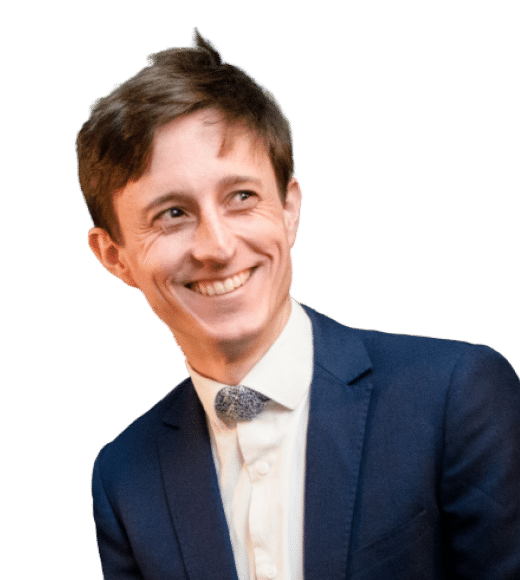 Thomas MatagnePresident and founder of EcovThomas Matagne is the founding president of Ecov. He holds degrees in environmental science (from Pierre and Marie Curie University) and in environmental public policy (from Sciences Po Paris). He has worked in the Île-de-France Regional Council and later at the Ministry of Ecology, focusing on energy transition issues. Struck by the lack of attention and investment in vehicle occupancy rates, and convinced that an ecological and inclusive transition requires reinventing public action through the radical innovation made possible by forward-thinking companies, Thomas decided to found Ecov at the end of 2014 to revolutionize car usage.
Thomas MatagnePresident and founder of EcovThomas Matagne is the founding president of Ecov. He holds degrees in environmental science (from Pierre and Marie Curie University) and in environmental public policy (from Sciences Po Paris). He has worked in the Île-de-France Regional Council and later at the Ministry of Ecology, focusing on energy transition issues. Struck by the lack of attention and investment in vehicle occupancy rates, and convinced that an ecological and inclusive transition requires reinventing public action through the radical innovation made possible by forward-thinking companies, Thomas decided to found Ecov at the end of 2014 to revolutionize car usage. -
 David MietCEO & co-founder of Villes Vivantes
David MietCEO & co-founder of Villes VivantesDavid Miet is an engineer, urban planner, and holds a PhD in architecture. After a decade leading research and development initiatives at the French Ministry of Ecology, he co-founded Villes Vivantes alongside Thomas Hanss, Amandine Hernandez, Denis Caraire, and Paul Lempérière. His ambition? To make well-designed, affordable, and well-located housing accessible to all through gentle densification.
In partnership with pioneering local authorities, he and the Villes Vivantes team are developing the first prototypes of BIMBY, BAMBA, BUNTI BRAMBLE and WIMBY operations — groundbreaking approaches that use residents’ own housing projects as the raw material for creating vibrant, small-scale, community-driven urban development. These innovations offer fresh, luminous ways for people to become neighbors.
-
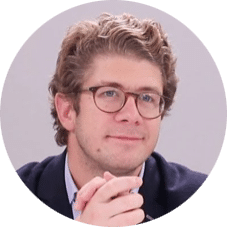 Bertrand MoineEntrepreneur and co-founder of Digital VillageBertrand Moine is an entrepreneur and co-founder of Digital Village, a network of innovative spaces dedicated to digital activities. With over 10 years of experience, he has built cross-disciplinary expertise in real estate and public affairs through roles in ministerial cabinets and professional associations. As both a witness to and an active participant in the transformations of work—digitalization, freelancing, and coworking—he has designed a unique offering that combines workspaces with living spaces. Today, he manages a portfolio of more than 5,000 m² spread across 8 locations in France and shares his vision of these profound changes through several key reference books, including Tout le monde rêve d'être indépendant and Pro en Freelance (published by Vuibert).
Bertrand MoineEntrepreneur and co-founder of Digital VillageBertrand Moine is an entrepreneur and co-founder of Digital Village, a network of innovative spaces dedicated to digital activities. With over 10 years of experience, he has built cross-disciplinary expertise in real estate and public affairs through roles in ministerial cabinets and professional associations. As both a witness to and an active participant in the transformations of work—digitalization, freelancing, and coworking—he has designed a unique offering that combines workspaces with living spaces. Today, he manages a portfolio of more than 5,000 m² spread across 8 locations in France and shares his vision of these profound changes through several key reference books, including Tout le monde rêve d'être indépendant and Pro en Freelance (published by Vuibert). -
 Thibault MontbazetHistorian, specialist in 19th-century social and urban history
Thibault MontbazetHistorian, specialist in 19th-century social and urban historyThibault Montbazet is a French historian and holder of the agrégation in history. He teaches history at the secondary school level and specializes in 19th-century urban, political, and social history, with in-depth expertise on Paris and its development. In 2022, he published his first book, "Une année terrible: Histoire biographique du siège de Paris 1870–1871". In addition to his work on the 19th century, Thibault Montbazet co-authored "Chronographie de la Seconde Guerre mondiale" with Nicolas Guillerat, also published by Passés Composés in 2022.
-
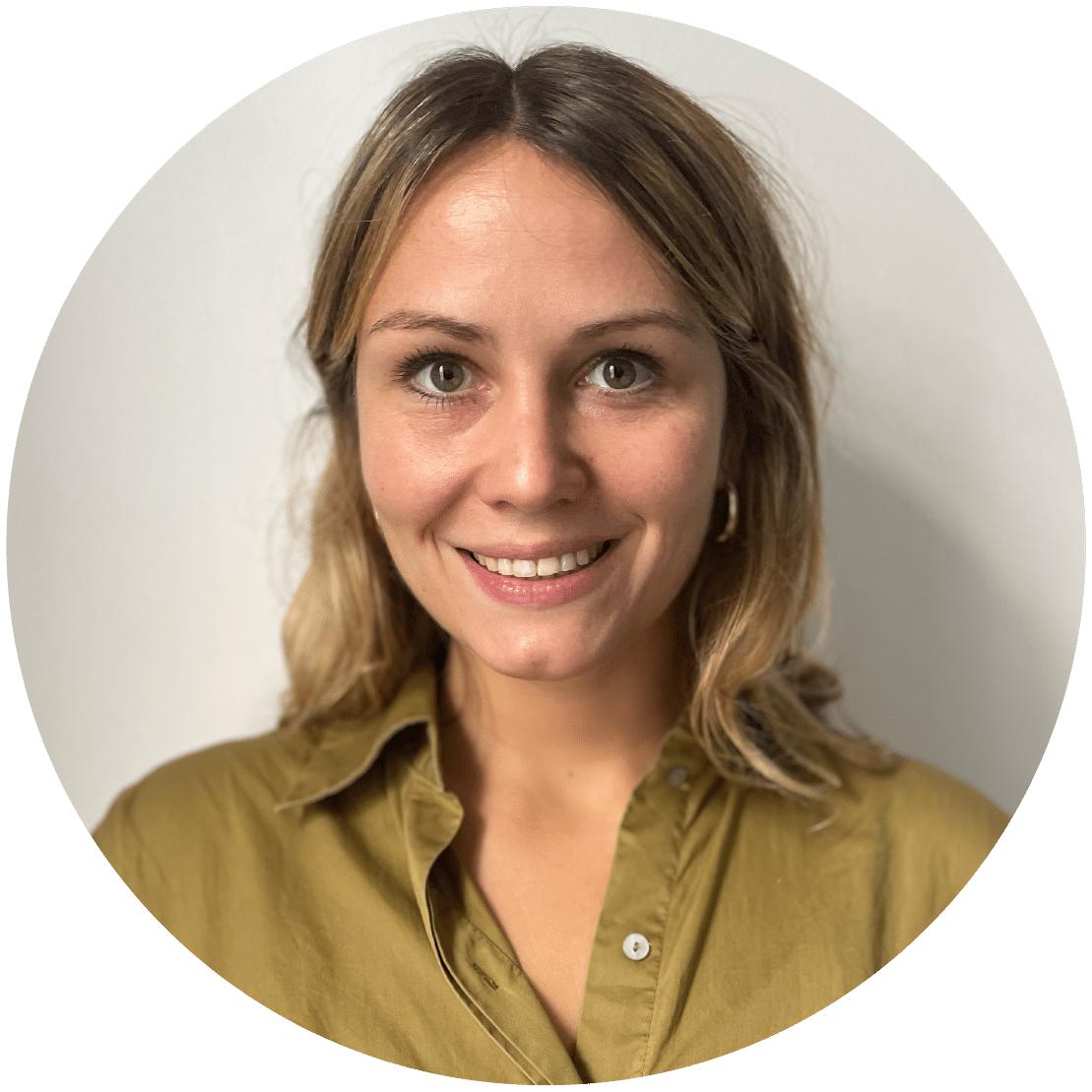 Lily MunsonPolitical advisor
Lily MunsonPolitical advisorA graduate of the École Normale Supérieure with a degree in Geography and Urban Planning, Lily Munson worked for five years in the office of the Deputy Mayor for Urban Planning and Architecture of the City of Paris, first as a political advisor and then as director, before becoming the Secretary General of Villes Vivantes between 2023 and 2025. Her work in advocating for the creation of social housing in Paris — through both property preemption in diffuse areas and large-scale real estate projects — as well as leading the revision of the bioclimatic Local Urban Plan, has deepened her commitment to exploring and experimenting with all available tools to address the housing crisis.
-
 Jean PinardJean Pinard, expert in sustainable tourism and founder of the consulting firm, FutourismJean Pinard is a recognized expert in sustainable tourism in France. A trained geographer, he has led several tourism organizations, including the Regional Tourism Committee of Occitanie. He advocates for a more ecological, social, and accessible form of tourism, notably promoting rail transport. Opposed to the overdevelopment of tourism infrastructure, he criticizes the concept of "overtourism," which he considers elitist. Today, he continues his work through his consulting firm, Futourism.
Jean PinardJean Pinard, expert in sustainable tourism and founder of the consulting firm, FutourismJean Pinard is a recognized expert in sustainable tourism in France. A trained geographer, he has led several tourism organizations, including the Regional Tourism Committee of Occitanie. He advocates for a more ecological, social, and accessible form of tourism, notably promoting rail transport. Opposed to the overdevelopment of tourism infrastructure, he criticizes the concept of "overtourism," which he considers elitist. Today, he continues his work through his consulting firm, Futourism. -
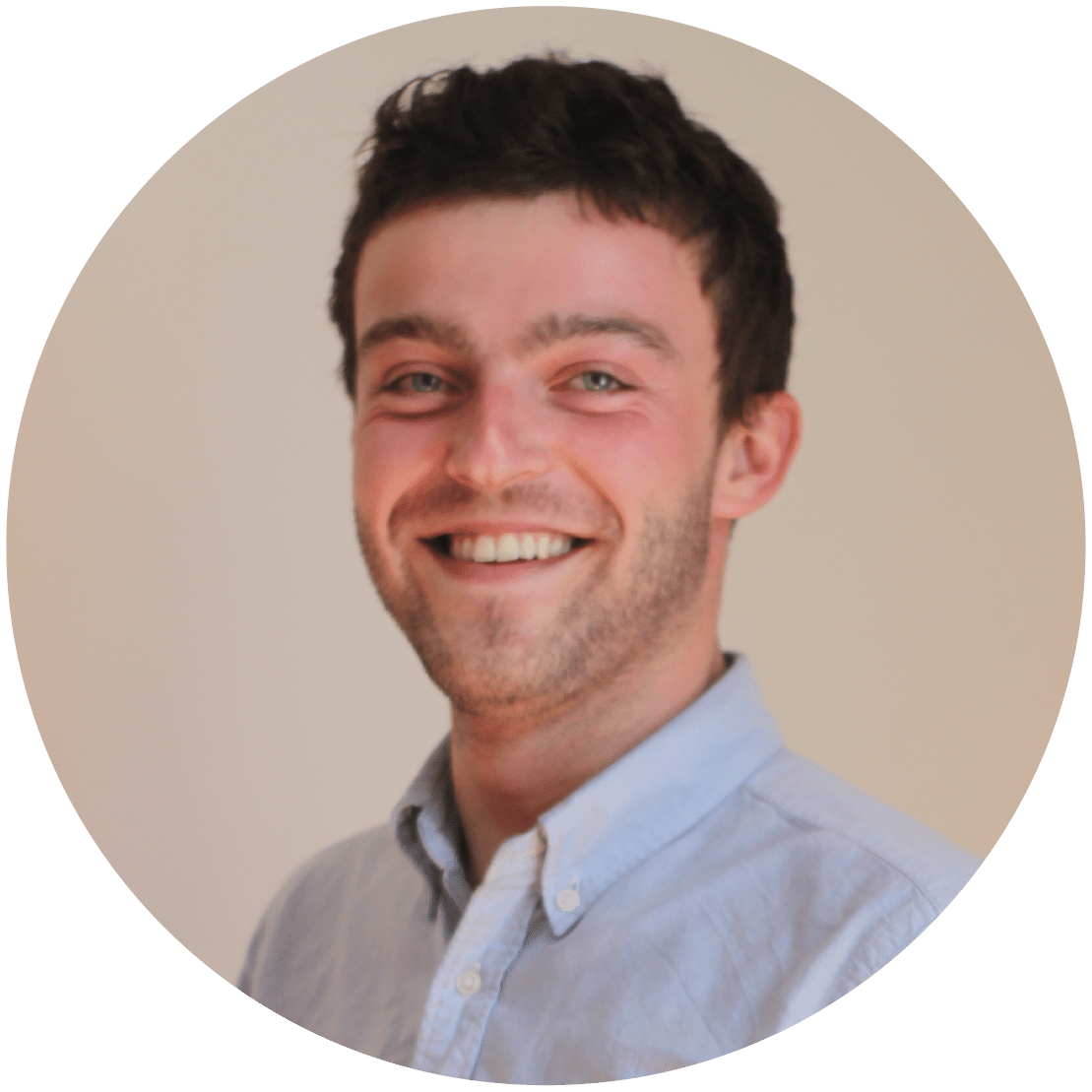 Lucas PouvreauGeographer and Director of Studies at Villes Vivantes
Lucas PouvreauGeographer and Director of Studies at Villes VivantesLucas Pouvreau is a geographer and urban planner, and one of the first to join Villes Vivantes in 2016. An expert in public urban planning and development policies, he has assisted over forty territories in designing their development strategies. Currently the Director of Studies at Villes Vivantes, he leads large-scale analyses on land use in the context of Net Zero Land Take (ZAN) goals, as well as on new and existing housing in relation to territorial and demographic dynamics. His work focuses on linking employment and housing needs, housing supply and demand, the evolution of land and real estate markets, the potential for development of existing built environments, and the intervention models of local operators. His goal? To develop the tools that will bring housing back to the heart of the public debate with the ambition and seriousness it deserves.
-
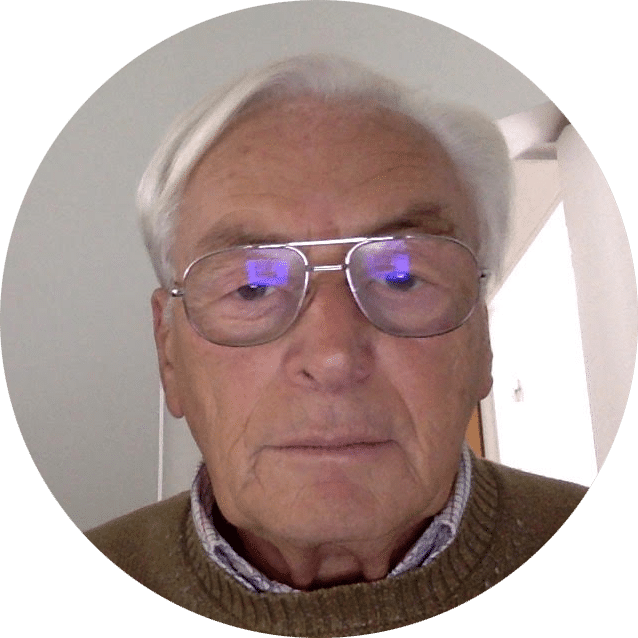 Simon RonaiGeographer and urban planner, housing expert
Simon RonaiGeographer and urban planner, housing expertSimon Ronai is a French geographer and urban planner, specializing in territorial development and urban planning. With degrees in geography and political science, he led the ORGECO consultancy, contributing to the development of Local Urban Plans (PLU), Local Housing Programs (PLH), and urban projects related to the National Agency for Urban Renewal (ANRU). An expert in metropolitan development, he worked with Antoine Grumbach on the Seine Métropole project and with David Mangin on the prefiguration of Aix-Marseille Métropole. Since 2001, he has been involved in metropolitan construction in Île-de-France alongside Pierre Mansat and local authorities in the Grand Paris. Simon Ronai also regularly publishes in the journal Hérodote, where he analyzes the issues of metropolitan governance, ecological planning, and decentralization. In 2024, he published the article "Comment les maires ont tué la Métropole du Grand Paris", highlighting the institutional fragmentation that hinders the metropolis's development. Recently, he contributed to the book "Pour en finir avec le petit Paris" (2024), in which he examines the densification of Paris and the limits of its urban expansion.
-
 Zack Rosenco-founder of California YIMBYZack Rosen is an American entrepreneur and a leading figure in California’s YIMBY (“Yes In My Backyard”) movement. He is the co-founder of California YIMBY, an organization he launched in 2017 to address California’s housing crisis. He actively advocates for removing regulatory barriers to large-scale housing construction in order to make the state affordable again for living, working, and raising a family. In recent years, the organization has played a decisive role in passing numerous landmark laws in Sacramento that facilitate housing production. He is also the co-founder of Abundance Network, which trains and mobilizes a new generation of civic leaders to modernize public action and governance.
Zack Rosenco-founder of California YIMBYZack Rosen is an American entrepreneur and a leading figure in California’s YIMBY (“Yes In My Backyard”) movement. He is the co-founder of California YIMBY, an organization he launched in 2017 to address California’s housing crisis. He actively advocates for removing regulatory barriers to large-scale housing construction in order to make the state affordable again for living, working, and raising a family. In recent years, the organization has played a decisive role in passing numerous landmark laws in Sacramento that facilitate housing production. He is also the co-founder of Abundance Network, which trains and mobilizes a new generation of civic leaders to modernize public action and governance. -
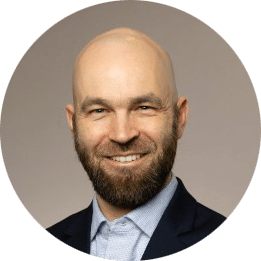 Luke TeaterHousing Economist and Policy ConsultantLuke Teater is an economist and public policy consultant specializing in solving the housing crisis through data analysis, research, and policy development, particularly in the areas of land use, financing, and feasibility. He was one of the principal architects of Proposition 123, which created new financing tools for affordable housing in Colorado. His expertise and modeling work aim to ground policy decisions in empirical data.
Luke TeaterHousing Economist and Policy ConsultantLuke Teater is an economist and public policy consultant specializing in solving the housing crisis through data analysis, research, and policy development, particularly in the areas of land use, financing, and feasibility. He was one of the principal architects of Proposition 123, which created new financing tools for affordable housing in Colorado. His expertise and modeling work aim to ground policy decisions in empirical data. -
 Xavier TimbeauPrincipal Director of OFCE, economist and professor at Sciences Po Paris
Xavier TimbeauPrincipal Director of OFCE, economist and professor at Sciences Po ParisA graduate of École Polytechnique and ENSAE, Xavier Timbeau is a French economist. He began his career at the Ministry of Industry before joining the Observatoire Français des Conjonctures Économiques (OFCE) in 1995, where he now serves as Executive Director. He also chairs the Environment and Sustainable Development Commission of the CNIS (French National Council for Statistical Information).
Alongside his institutional responsibilities, Xavier Timbeau is actively involved in academic research and teaching.
His research covers macroeconomic analysis, economic modeling, and applied econometrics, with a specific interest in labor markets, household consumption, and housing in both France and Europe.
The OFCE, which he leads, is an independent institution dedicated to economic forecasting, public policy research, and evaluation. Hosted by the French National Foundation for Political Science (FNSP) under a 1981 agreement with the French State, the OFCE brings together more than 40 French and international researchers. Its mission is to contribute to public economic debate through the rigor of academic research and scientific independence.
The OFCE covers a wide range of economic domains, including macroeconomics, growth, welfare systems, taxation, employment policy, sustainable development, inequality, competition, innovation, and regulation. Its research is grounded in advanced econometric models—complex scientific tools continuously developed and refined—as well as household and firm-level microdata, which enable detailed analysis of inequality dynamics and business heterogeneity across the economy.
-
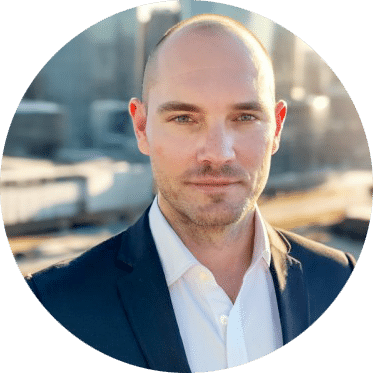 Jeffery TompkinsUrban planner, architectural illustrator and entrepreneur, founder of ProformusJeffery Tompkins is an urban planner, architectural illustrator, and entrepreneur dedicated to building cities incrementally alongside communities. With 15 years of experience, he works at the intersection of zoning reform, reparative urbanism, and wealth -building strategies in disinvested neighborhoods. He has led major district plans, including the nation’s largest health district in Indianapolis, and shaped over $2 billion in urban investment. A Rust Belt native, he champions place-based, context-driven development over one-size-fits-all models. He founded Proformus, a studio advancing incremental urbanism, and is currently writing a book on emergent cities and hyperlocal planning.
Jeffery TompkinsUrban planner, architectural illustrator and entrepreneur, founder of ProformusJeffery Tompkins is an urban planner, architectural illustrator, and entrepreneur dedicated to building cities incrementally alongside communities. With 15 years of experience, he works at the intersection of zoning reform, reparative urbanism, and wealth -building strategies in disinvested neighborhoods. He has led major district plans, including the nation’s largest health district in Indianapolis, and shaped over $2 billion in urban investment. A Rust Belt native, he champions place-based, context-driven development over one-size-fits-all models. He founded Proformus, a studio advancing incremental urbanism, and is currently writing a book on emergent cities and hyperlocal planning. -
 VVHOMESMy life changes, my home too!
VVHOMESMy life changes, my home too!VVHOMES is the platform of tools and services for private individuals developed by Villes Vivantes, a company founded in 2013 with offices in Bordeaux, Paris, Lyon, Toulouse, Rennes and Strasbourg. It brings together a team of 30 experts in urban planning, architecture, landscape design, heritage conservation, real estate, land use, and construction.
Over the past 12 years, Villes Vivantes has supported more than 12,000 individuals in projects such as: * Subdivision of plots and construction of new homes in existing gardens, * Renovation and reconfiguration of older or vacant housing.
Our role? To identify the right options tailored to your financial situation, your needs, and your aspirations; to help you and your family make informed decisions; to design a custom project that reflects your vision—and to guide you every step of the way until it is built.
-
 VVLOVEEvery homeowner-led initiative in favor of well-located, high-quality housing is a key contribution
VVLOVEEvery homeowner-led initiative in favor of well-located, high-quality housing is a key contributionAs the housing crisis deepens in France, Villes Vivantes took the step in December 2023 to create VVLOVE, its Social Impact Department. Under the leadership of Denis Caraire, this new division is dedicated to launching high-leverage initiatives aimed at improving housing conditions and supporting the accommodation of all individuals—wherever they need or wish to live.
-
 VVPLACEThe future of each territory starts now
VVPLACEThe future of each territory starts nowVVPLACE is the Strategic Planning & Urban Studies Department of Villes Vivantes, a company founded in 2013 with offices in Bordeaux, Paris, Lyon, Toulouse, Rennes, and Strasbourg. It provides tailored services to local governments and all stakeholders involved in urban renewal projects.
As France’s leading operator of gentle densification, Villes Vivantes has pioneered urban innovations—BIMBY, BUNTI, BAMBA—now implemented nationwide. These tools are rooted in a strong commitment to citizen engagement in shaping the city within the city, and together they form the foundation of what we call organic urbanism.
With a team of 30 experts in urban planning, architecture, landscape design, heritage, real estate, land development, and construction, the Strategic Planning & Urban Studies Department of Villes Vivantes has, over the past decade, supported more than 150 local authorities. Our work includes developing zoning and urban planning frameworks (PLUs and PLUis), designing housing policies, and creating public programs to support the renovation and transformation of the existing private housing stock.
-
 Beat WeberInternational consultant and executive director of Development Workshop Switzerland
Beat WeberInternational consultant and executive director of Development Workshop SwitzerlandBeat Weber holds a PhD in Urban Studies from Heriot-Watt University (Scotland), a Master’s in Peace Studies from the University of Bradford (UK), and a Bachelor’s in Geography from the University of Basel (Switzerland). He is the founder and director of Development Workshop Namibia (DWN), which he launched in 2016 after contributing to several projects in Angola and Zambia. With a career dedicated to developing innovative responses to the challenges of urbanization in Southern Africa, he focuses on implementing practical, scalable solutions for affordable housing.
-
 Éric WeissPresident of the french Federation of Property DealersÉric Weiss is the President of the Fédération des Marchands de Biens (FMDB) and heads training organizations specializing in real estate investment. An agrégé professor of economics and management, he taught for over ten years at the Université Savoie Mont Blanc (IUT Annecy), where he also directed the Continuing Education department. He has over fifteen years of experience as a property dealer, having supervised several hundred purchase-resale transactions. He is dedicated to structuring the profession by establishing competency frameworks and legal tools for practitioners.
Éric WeissPresident of the french Federation of Property DealersÉric Weiss is the President of the Fédération des Marchands de Biens (FMDB) and heads training organizations specializing in real estate investment. An agrégé professor of economics and management, he taught for over ten years at the Université Savoie Mont Blanc (IUT Annecy), where he also directed the Continuing Education department. He has over fifteen years of experience as a property dealer, having supervised several hundred purchase-resale transactions. He is dedicated to structuring the profession by establishing competency frameworks and legal tools for practitioners. -
 Josephine Yilan LiuFounder and Director of Transformative Cities, researcher specializing in the influence of the built environment on individuals and societyJosephine Yilan Liu is a designer, researcher, and framework builder trained in architecture, environmental design, and cognitive science. With over 15 years of experience in Europe and China, she has worked in both fast-paced design studios and large-scale public-sector projects. She is the co-founder of the Urban Future Global Conference. In recent years, her work has revolved around a central question: “What kind of people do our built environments help shape?” To address this, she developed Transformative Cities, a research-based methodological framework that translates insights from cognitive and behavioral sciences into practical design tools. The aim is to enable cities and designers to intentionally influence behavior, attention, and social life through the shaping of physical space.
Josephine Yilan LiuFounder and Director of Transformative Cities, researcher specializing in the influence of the built environment on individuals and societyJosephine Yilan Liu is a designer, researcher, and framework builder trained in architecture, environmental design, and cognitive science. With over 15 years of experience in Europe and China, she has worked in both fast-paced design studios and large-scale public-sector projects. She is the co-founder of the Urban Future Global Conference. In recent years, her work has revolved around a central question: “What kind of people do our built environments help shape?” To address this, she developed Transformative Cities, a research-based methodological framework that translates insights from cognitive and behavioral sciences into practical design tools. The aim is to enable cities and designers to intentionally influence behavior, attention, and social life through the shaping of physical space.
Contact-us : contribuer@vv.guide